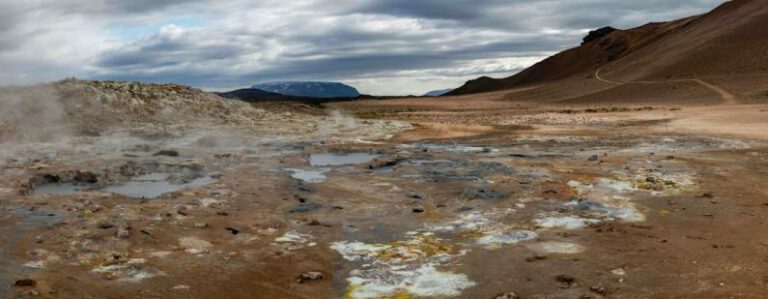How to Prepare for High-altitude Destinations?
High-altitude destinations offer breathtaking views, thrilling adventures, and unique experiences. From hiking in the mountains to exploring ancient ruins, these destinations have much to offer. However, it is important to note that traveling to high-altitude locations can pose certain challenges to your health and well-being. The lack of oxygen at higher altitudes can lead to altitude sickness, which can be dangerous if not properly managed. To ensure a safe and enjoyable trip, it is essential to prepare for high-altitude destinations. In this article, we will discuss some important tips to help you get ready for your adventure.
Research and Plan Ahead
Before embarking on your high-altitude adventure, it is crucial to do proper research and plan ahead. This includes understanding the altitude at your destination, knowing the symptoms and risks of altitude sickness, and being aware of any necessary precautions. By educating yourself about high-altitude travel, you will be better prepared to handle the challenges that may arise.
Stay Hydrated
One of the most important things you can do to prepare for high-altitude destinations is to stay hydrated. The lower oxygen levels at high altitudes can cause increased fluid loss through respiration and perspiration. Therefore, it is essential to drink plenty of water before and during your trip. Avoid excessive alcohol and caffeine consumption, as they can contribute to dehydration. Additionally, consider carrying a reusable water bottle with you to ensure easy access to water at all times.
Gradual Acclimatization
Acclimatization is the process of adjusting to the high altitude gradually. It is crucial to allow your body enough time to adapt to the lower oxygen levels to minimize the risk of altitude sickness. If possible, plan your itinerary in a way that allows for gradual ascent. Spend a few days at intermediate altitudes before reaching the highest point of your trip. This will give your body time to adjust and reduce the chances of getting sick.
Physical Fitness
Physical fitness plays a significant role in preparing your body for high-altitude destinations. Engaging in regular exercise before your trip can help improve your cardiovascular endurance and lung capacity, which are essential for coping with the decreased oxygen levels. Consider incorporating aerobic exercises, such as jogging, swimming, or cycling, into your routine. Additionally, practicing breathing exercises, such as deep breathing and yoga, can be beneficial in improving your lung capacity.
Packing Essentials
When preparing for high-altitude destinations, it is important to pack the right essentials. Some items that should be on your packing list include:
– Warm clothing: High-altitude locations can get cold, even in the summer months. Pack warm layers, including a hat, gloves, and a good quality insulated jacket.
– Sun protection: The higher you go, the stronger the sun’s rays become. Pack sunscreen with a high SPF, sunglasses, and a wide-brimmed hat to protect yourself from sunburn and eye damage.
– Medications: If you have any pre-existing medical conditions or allergies, make sure to bring an ample supply of your medications. Additionally, consider carrying over-the-counter medications for altitude sickness, such as ibuprofen or acetaminophen.
– Snacks: High-altitude activities can be physically demanding, and you may need extra energy. Pack high-energy snacks like nuts, granola bars, and dried fruits to keep you fueled throughout the day.
Listen to Your Body
Finally, it is important to listen to your body while traveling to high-altitude destinations. Pay attention to any signs of altitude sickness, such as headache, dizziness, nausea, or shortness of breath. If you experience any symptoms, it is crucial to take immediate action. Descend to a lower altitude, rest, and hydrate. If symptoms worsen or persist, seek medical attention.
In conclusion, preparing for high-altitude destinations requires research, planning, and taking certain precautions. By staying hydrated, allowing for gradual acclimatization, maintaining physical fitness, packing the right essentials, and listening to your body, you can ensure a safe and enjoyable trip. Remember to consult with your healthcare provider before traveling to high-altitude locations, especially if you have any pre-existing medical conditions. With proper preparation, you can make the most of your high-altitude adventure and create memories that will last a lifetime.






